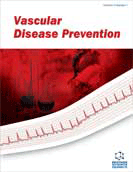Abstract
In cultured human macrophages, apolipoprotein(a) (apo(a)), has pro-inflammatory properties attributable to the presence of oxidized phosphatidylcholine (ox-PC) in kringle V. In the plasma, apo(a) is linked to apoB100 and contains ox-PC, whereas in the artery plaque, the status of apo(a) is unknown. To this effect we have studied the properties of blood-derived apo(a) in the human carotid plaque. Subjects having either high or low plasma Lp(a) underwent carotid artery endarterectomy. After surgery, the plaques were frozen, laser dissected into macrophage dense and poor areas identified by CD68 reactivity and the sections extracted with 6 M GdHCl. Western blots of the extracts and immunoprecipitated apo(a) used anti-apo(a) specific polyclonal antibodies and T15, a monoclonal specific for ox-PC. The relationship of apo(a) to fibronectin was also studied. Apo(a) was only detected in the plaques of high plasma Lp(a) subjects, was partially fragmented and reacted with T15 indicating linkage to ox-PC. Moreover, ox-PC / apo(a) was present in macrophage-dense and macrophage-poor areas co-localized with fibronectin. In carotid artery plaques apo(a) colocalizes with fibronectin and probably other extraxcellular matrix elements, it is fragmented and linked to ox-PCs. We speculate that these modifications contribute to the pathogenicity of Lp(a) via apo(a).
Keywords: Apolipoprotein(a), kringle V, oxidized phospholipids, inflammation, carotid artery plaque
 6
6

